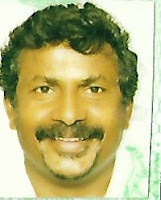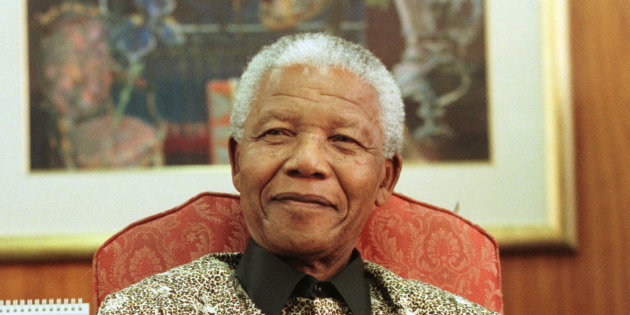Wednesday, August 1, 2018
NELSON MANDELA AND SOUTH AFRICA'S PEOPLE OF INDIAN-ORIGIN BY SUBRY GOVENDER Mandela and SA’s Indian-origin people
JULY 20 2018
As South Africans continue to observe the 100th birth anniversary of freedom icon, Nelson Mandela, veteran correspondent, Subry Govender, has dug deeper into his archives to bring you Mandela’s words of advice and encouragement when he addressed the country’s people of Indian-origin in Chatsworth, Durban, in 1994.
Seven months after being elected as the first democratic President of South Africa in May 1994, Nelson Mandela visited KwaZulu-Natal in November of that year to speak to the different communities.
One of the official functions he addressed was at Chatsworth - home to more than 500 000 citizens of Indian-origin. He made the visit and addressed the community as a whole at a time when there was increasing anxiety about the anti-Indian sentiments that were emerging once again; when land invasions were taking place on farms owned by Indian-origin farmers in a number of areas on the North Coast and South Coast and when the sudden spike in violent crime rate began to claim a number of lives.
Mandela, speaking to a large crowd of people, re-emphasised that they had nothing to fear in the new South Africa.
Trying to re-assure the people, he said:
“We are confident that as the light of knowledge conquers the darkness of evil, the benefits of the new era for peace and prosperity, freedom and tolerance will now be clear.
“We are one nation of many cultures and religion. No community or religion has anything to fear from non-racialism and democracy. On the contrary all communities and religions now enjoy equal respect without preference.”
Mandela then went onto make it crystal clear that in the new, non-racial and democratic South Africa, no community should feel threatened for affirming one’s identity.
“No longer do communities in affirming their identities should feel themselves in conflict or separated from the rest of society,” he told the people.
“The changes are the mark of the transformation through which our society is growing. If and radical as the changes must be they pose no threat to any community.”
Mandela then used the occasion to urge Indian-origin South Africans not to allow themselves to be marginalised but to become a full part of the new South Africa.
“Members of the Indian community,” he said, “who were forced by apartheid to count themselves as part of a minority are now free to become part of the majority”.
“Exercise that freedom. Reject the past. Join hands for a better life.”
In another act of statesmanship, Mandela surprised those present when he quoted from the Indian scriptures to call on the people to be confident and positive about the future South Africa.
He said: “As the Hindu scriptures say and I quote: ‘We are what our deep driving desire is. As our desire is, so is our will. As our will is, so is our deed. As our deed is, so is our destiny.’
“The destiny of the Indian community is the better life for all. We are one South African nation united in one common destiny. Let this central thought guide our deeds in our urgent task in building this new society.”
(Dr MONTY NAICKER AND DR YUSUF DADOO)
South Africa’s first democratic President also used the platform to praise the role played by leaders of the Natal Indian Congress in the liberation struggles from the early 1900s to 1994. Some of the leaders he mentioned included Dr Yusuf Dadoo, Dr Monty Naicker, Dr Kesaval Goonam, Ismail Meer, Mrs Fatima Meer, and J N Singh.
(DR KESAVAL GOONAM)
(PROF FATIMA MEER)
This is what he said about their contributions and the sacrifices by leaders such as Mewa Ramgobin, George Sewpersadh, D K Singh, Dr Farouk Meer, M J Naidoo, Ms Ela Gandhi, Dr Jerry Coovadia, Paul Devadas David, Billy Nair, Sunny Singh, R Ramesar and A H Randeree and countless other stalwarts since the early 1960s.
(BILLY NAIR AND AHMED KATHRADA)
“The spirit of freedom and peace which was embodied in the Natal Indian Congress as an ardent opponent of oppression and division lives on. Forced by the constraints of apartheid to work for a century through a political organisation restricted to one community, it is now infused in the larger body politics, a component of the creative energy which is working to make our country free from which oppression, hunger and deprivation.”
The statements made by Nelson Mandela 24 years ago are memorable insights that need to be repeated over and over again today.
They are words of wisdom that bring hope to those South Africans who today feel their colour and ethnic groupings have become more pronounced in what should be a non-racial society.
Our new President, Cyril Ramaphosa, has taken advantage of Mandela’s 100th birth anniversary by responding to those political elements who are sowing seeds racial hatred and disquiet.
When addressing a Mandela Day function at Mvezu, the birthplace of Mandela, in the Eastern Cape on Wednesday, July 18, Ramaphosa reminded the racial mongers that Mandela, where ever he is, would be deeply concerned about the resurgence of racism and ethno-nationalism.
Ramaphosa, without pulling any punches, made it clear that there was no place for racism and ethnic chauvinism in the new South Africa.
He said: “There’s no place for racism in South Africa, no place for tribalism in our country. We are called upon to speak out when the values for which Mandela lived and for which so many fought for are denigrated by those who have no interest in the progress of our country.”
Now that Ramaphosa has taken the lead against the racial hatred being perpetrated against fellow South Africans, one hopes that other ruling ANC leaders and officials would also speak out against this crime on a regular basis. By doing this they will definitely have an impact on those elements that President Ramaphosa says are denigrating Mandela’s values and principles for a free, non-racial, democratic, united and peaceful South Africa. Ends – subrygovender@gmail.com (July 20 2018)
Subscribe to:
Post Comments (Atom)







No comments:
Post a Comment